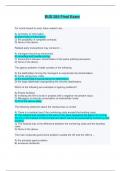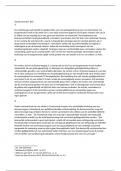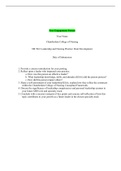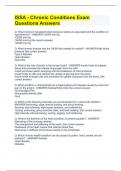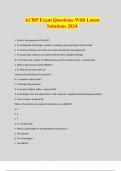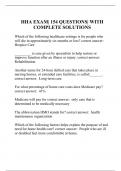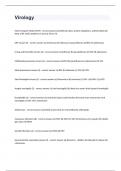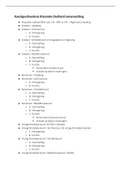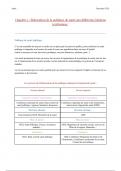Exam (elaborations)
BUS 284 Final Exam | Complete Solutions, Answered
- Module
- Institution
BUS 284 Final Exam | Complete Solutions, Answered For moral hazard to exist, there needs to be ... A) symmetry of information. B) asymmetry of information. C) the possibility of complete contracts. D) None of the above. Related-party transactions may consist of ... A) managers becoming entrenched...
[Show more]
